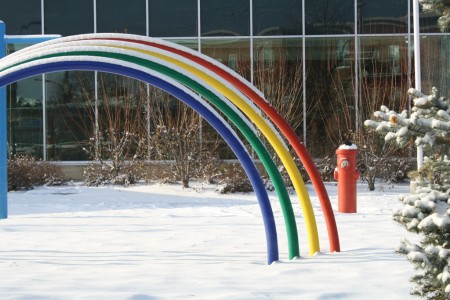Ocean acidification is one of the wildcard elements of climate change. While both global warming and more acidic oceans are the result of increased carbon dioxide (CO2) concentrations in the atmosphere, the mechanisms are completely independent. The warming occurs because CO2 absorbs some of the long-wave infrared radiation the Earth would otherwise broadcast out into space. The retention of that energy within the atmosphere warms the planet. Acidification occurs because more CO2 in the atmosphere causes increased hydrogen ion concentration in seawater. Both issues would be addressed through stopping net carbon dioxide emissions. In both cases, the magnitude and pacing of future harm is far from certain, even as a function of future emissions timelines.
New research by Professor Timothy Wootton of the University of Chicago has shown that acidification in the Pacific Northwest is taking place much more rapidly than expected; measurements taken off the coast of Washington state show that pH is falling 10 to 20 times faster than projected. One explanation for the discrepancy is the failure of previous models to take into account the effects of biological organisms. The research has also demonstrated that the effects of changes in pH on marine organisms are more pronounced than anticipated.
Compared to terrestrial life, scientific knowledge about the sea is very rudimentary in places. As a consequence, there is good reason to worry about important and unexpected changes arising because of our increasingly acidic oceans. This is all the more reason to keep the carbon that is so densely packed into coal and oil in the ground, rather than allowing it to be released into the atmosphere from our smokestacks, jet engines, and tailpipes.


Being wrong by an order of magnitude, that should remind people that nature is more complex than science.
This isn’t a slight against ‘science’ writ large. Rough estimates based on partial simplistic models are unlikely to match the data in general, and very unlikely to match one particular dataset from a certain location. What this shows is that there may not have been enough scientific work done on this particular question. Right now, ocean acidification barely registers in anyone’s political consciousness. That only seems likely to change when it starts having acute effects.
Of course, by that point it will be hard to stop and virtually impossible to reverse.
On a more theoretical level, nature (or ‘the world’) will always be more complicated than science, at least until the point is reached where any possible physical interaction can be modelled in some sort of computer. Producing scientific models that closely approximate nature takes a lot of work. That being said, we don’t have any better way to generate testable predictions about the future of physical phenomena. Aside from science, what mechanism could you use to meaningfully investigate ocean acidification?
Incidentally, this description of the scientific method in Zen and the Art of Motorcycle Maintenance is rather good. I am a bit more than 25% of the way through the book now.
Heidegger and the Art of Motorcycle Maintenance
Get out of your cubicle, and get those cuticles dirty!
By Michael Agger
Updated Tuesday, May 19, 2009, at 12:17 PM ET
When Matthew Crawford finished his doctorate in political philosophy at the University of Chicago, he took a job at a Washington think tank. “I was always tired,” he writes, “and honestly could not see the rationale for my being paid at all.” He quit after five months and started doing motorcycle repair in a decaying factory in Richmond, Va. This journey from philosopher manqué to philosopher-mechanic is the arc of his new book, Shop Class as Soulcraft: An Inquiry Into the Value of Work. It’s appropriate that it arrives in May, the month when college seniors commence real life. Skip Dr. Seuss, or a tie from Vineyard Vines, and give them a copy for graduation.